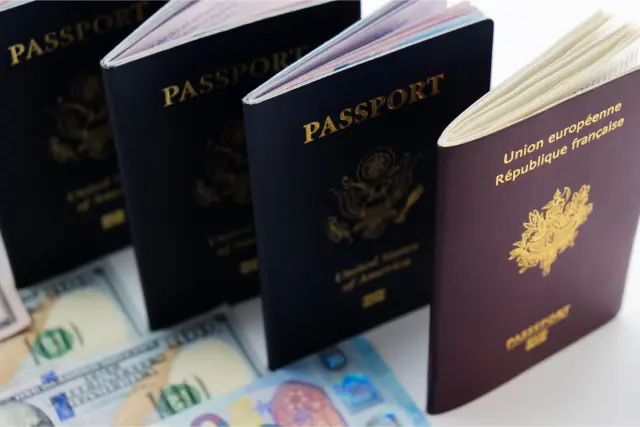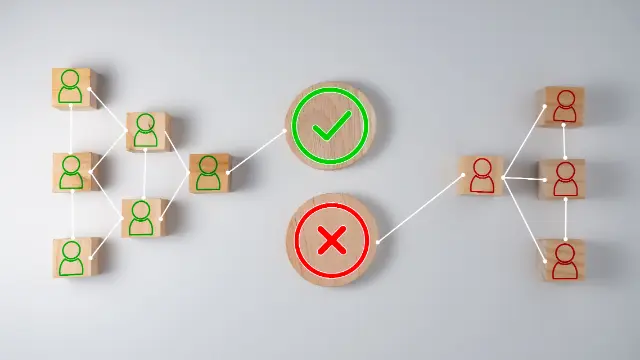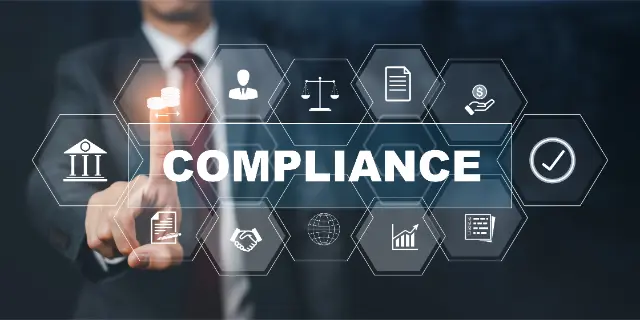Visa Application Processing Automation: A Lifeline for the Hospitality Industry
In the ever-evolving hospitality landscape, seamless travel experiences are paramount. However, the complexities of visa application processing can often hinder the smooth flow of international travel for both businesses and individuals. Visa Application Processing Automation emerges as a game-changer, promising to streamline this intricate process and unlock new possibilities for the industry.
Visa Application Processing Automation: A Lifeline for the Hospitality Industry
Challenges of Visa Application Processing
Visa application processing is a notoriously time-consuming and error-prone task. Manual data entry, form completion, and appointment scheduling can lead to delays, inaccuracies, and missed opportunities. For the hospitality industry, where time is of the essence, these challenges can have a significant impact on business operations and guest satisfaction.
The Power of Automation
Visa Application Processing Automation leverages the power of Python, artificial intelligence (AI), and cloud-based solutions to automate every step of the visa application process. RPA bots can:
- Collect client information from multiple sources
- Populate visa application forms with accuracy and consistency
- Schedule visa appointments based on availability and preferences
By automating these tasks, businesses can significantly reduce processing times, eliminate errors, and improve the overall efficiency of their visa application process.
Benefits for the Hospitality Industry
For the hospitality industry, Visa Application Processing Automation offers a multitude of benefits:
- Faster processing times: Automated systems can process visa applications in a fraction of the time it takes to do so manually.
- Improved accuracy: RPA bots eliminate human error, ensuring that visa applications are complete and accurate.
- Increased efficiency: Automation frees up staff time, allowing them to focus on more strategic tasks.
- Enhanced guest satisfaction: Streamlined processing times and reduced errors lead to improved guest experiences and satisfaction.
Conclusion
Visa Application Processing Automation is a transformative solution for the hospitality industry. By embracing automation, businesses can streamline their visa application processes, improve accuracy, increase efficiency, and enhance guest satisfaction. As the industry continues to evolve, automation will play an increasingly vital role in delivering seamless travel experiences for both businesses and individuals.

Python, AI, and Cloud: Powering Visa Application Processing Automation
Python: The Foundation for Unattended and Attended Bots
Python is a versatile programming language that is ideally suited for developing both unattended and attended bots for Visa Application Processing Automation.
Unattended Bots
Unattended bots are designed to run autonomously, without human intervention. They can be used to automate repetitive tasks such as data entry, form completion, and appointment scheduling. Python’s powerful scripting capabilities and extensive libraries make it easy to develop unattended bots that can handle complex tasks with accuracy and efficiency.
Attended Bots
Attended bots, on the other hand, require human interaction to complete tasks. They are typically used to assist humans with tasks that require judgment or decision-making. Python’s intuitive syntax and user-friendly development environment make it easy to develop attended bots that are easy to use and customize.
Cloud Platforms: Orchestrating Automation at Scale
Cloud platforms offer a range of features and capabilities that make them ideal for orchestrating Visa Application Processing Automation. These platforms provide:
- Scalability: Cloud platforms can easily scale up or down to meet the changing demands of your business.
- Reliability: Cloud platforms are highly reliable and offer built-in redundancy to ensure that your automations are always running.
- Security: Cloud platforms provide robust security measures to protect your data and applications.
- Integration: Cloud platforms offer a wide range of integrations with other applications and services, making it easy to connect your automations to your existing systems.
AI: Enhancing Accuracy and Handling Edge Cases
AI techniques can be used to improve the accuracy and efficiency of Visa Application Processing Automation. For example:
- Image recognition: AI can be used to extract data from scanned documents, such as passports and visas.
- Natural language processing (NLP): AI can be used to understand and process unstructured text, such as emails and chat messages.
- Generative AI: AI can be used to generate text, such as visa application forms, based on a set of rules or examples.
By incorporating AI techniques into your automations, you can improve their ability to handle edge cases and make them more robust and reliable.
Conclusion
Python, AI, and cloud platforms are essential technologies for Visa Application Processing Automation. By leveraging these technologies, businesses can streamline their visa application processes, improve accuracy, increase efficiency, and enhance guest satisfaction. As the industry continues to evolve, these technologies will play an increasingly vital role in delivering seamless travel experiences for both businesses and individuals.

Building the Visa Application Processing Automation
Sub-processes and Automation Development
The Visa Application Processing Automation process can be broken down into the following sub-processes:
- Client data collection: Collect client information from multiple sources, such as online forms, emails, and chat messages.
- Visa application form completion: Populate visa application forms with the collected client data.
- Visa appointment scheduling: Schedule visa appointments based on availability and preferences.
Each of these sub-processes can be automated using Python and cloud platforms.
Step 1: Client Data Collection
Python can be used to develop unattended bots that can automatically collect client data from multiple sources. These bots can be configured to run on a regular schedule or triggered by specific events, such as the receipt of a new email or chat message.
Step 2: Visa Application Form Completion
Python can also be used to develop unattended bots that can automatically populate visa application forms with the collected client data. These bots can be configured to use a variety of techniques to extract data from scanned documents and unstructured text.
Step 3: Visa Appointment Scheduling
Python can be used to develop attended bots that can assist humans with scheduling visa appointments. These bots can be configured to search for available appointments based on specific criteria, such as date, time, and location.
Data Security and Compliance
Data security and compliance are critical considerations for any business, especially in the hospitality industry. Python and cloud platforms offer a range of features and capabilities to help businesses protect their data and comply with applicable regulations.
For example, Python offers a number of built-in security features, such as:
- Encryption: Python can be used to encrypt data at rest and in transit.
- Authentication: Python can be used to implement authentication and authorization mechanisms to control access to data and applications.
- Logging: Python can be used to log security events and activities for auditing and compliance purposes.
Cloud platforms also offer a range of security features and compliance certifications, such as:
- Data encryption: Cloud platforms encrypt data at rest and in transit.
- Access control: Cloud platforms provide fine-grained access control mechanisms to control who can access data and applications.
- Compliance certifications: Cloud platforms are certified to comply with a variety of industry standards and regulations, such as ISO 27001 and HIPAA.
Python vs. No-Code RPA/Workflow Tools
While no-code RPA/workflow tools can be useful for automating simple tasks, they are often limited in terms of their capabilities and flexibility. Python, on the other hand, is a powerful and versatile programming language that can be used to automate a wide range of tasks, including complex and unstructured tasks.
Additionally, Python is an open-source language, which means that it is free to use and modify. This gives businesses the flexibility to customize their automations to meet their specific needs.
Algorythum’s Approach
Algorythum takes a different approach to Visa Application Processing Automation because we understand that off-the-shelf automation platforms often do not meet the needs of our clients. These platforms are often limited in terms of their capabilities, flexibility, and scalability.
Algorythum’s approach is to use Python and cloud platforms to develop custom Visa Application Processing Automation solutions that are tailored to the specific needs of our clients. This approach allows us to deliver solutions that are:
- Powerful: Python is a powerful and versatile programming language that can be used to automate a wide range of tasks.
- Flexible: Python is an open-source language, which means that it is free to use and modify. This gives us the flexibility to customize our automations to meet the specific needs of our clients.
- Scalable: Cloud platforms offer scalable infrastructure that can be used to support even the most demanding automation workloads.
Conclusion
Visa Application Processing Automation can help businesses in the hospitality industry streamline their visa application processes, improve accuracy, increase efficiency, and enhance guest satisfaction. Python and cloud platforms are ideal technologies for developing Visa Application Processing Automation solutions. Algorythum’s approach is to use Python and cloud platforms to develop custom Visa Application Processing Automation solutions that are tailored to the specific needs of our clients.

The Future of Visa Application Processing Automation
The future of Visa Application Processing Automation is bright. As new technologies emerge, we will see even more powerful and sophisticated automation solutions.
One area of future growth is the use of artificial intelligence (AI) to improve the accuracy and efficiency of Visa Application Processing Automation. AI techniques, such as image recognition and natural language processing, can be used to automate tasks that are currently difficult or impossible to automate with traditional methods.
Another area of future growth is the use of blockchain technology to secure and streamline the Visa Application Processing Automation process. Blockchain technology can be used to create a secure and tamper-proof record of all visa applications and transactions. This would make it easier for businesses to track the status of visa applications and to comply with applicable regulations.
We encourage you to subscribe to our blog to stay up-to-date on the latest trends in Visa Application Processing Automation and other industry-specific automation solutions. You can also contact our team to get a free feasibility and cost-estimate for your custom automation requirements.
We believe that Visa Application Processing Automation has the potential to revolutionize the hospitality industry. By streamlining the visa application process, businesses can save time and money, improve accuracy, and enhance guest satisfaction. We are excited to see what the future holds for this technology.

Algorythum – Your Partner in Automations and Beyond
At Algorythum, we specialize in crafting custom RPA solutions with Python, specifically tailored to your industry. We break free from the limitations of off-the-shelf tools, offering:
- A team of Automation & DevSecOps Experts: Deeply experienced in building scalable and efficient automation solutions for various businesses in all industries.
- Reduced Automation Maintenance Costs: Our code is clear, maintainable, and minimizes future upkeep expenses (up to 90% reduction compared to platforms).
- Future-Proof Solutions: You own the code, ensuring flexibility and adaptability as your processes and regulations evolve.









